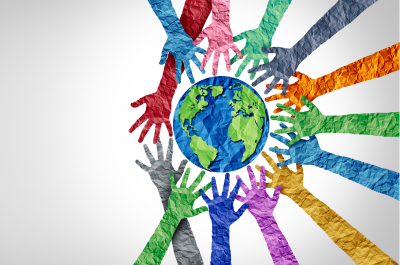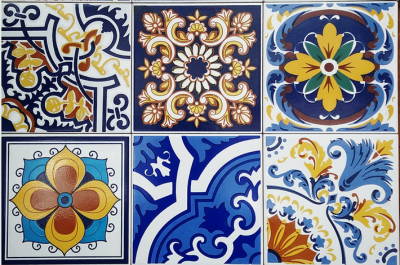
I’ve had to mentally rearrange the way I look at life and what I value. Tallying up the recent months, the perpetual negative news has eaten away at me.
I’ve heard how lucky I am to be away from the constant bombardment of bleakness. Yes, I do feel fortunate for the soft landing of joy, which I’ve planned a long time to find. Meditation, a ritual like drinking water, is not foreign to me. The short walk from my home brings me to the breathtaking Atlantic Ocean, where I reflect in humble gratitude. Along the way is a neighborhood scattered with Portuguese, Americans, Italians, French, and Spanish. “Bom Dia,” I say (it means good morning or good day), and receive a reciprocated nod and friendly exchange.
As I’ve said, there’s NO PERFECT PLACE void of world news, death, or tragedies. Two priorities for mastering moving abroad are making a clear assessment of the new language and understanding unfamiliar bureaucratic policies—both of which require patience. One can’t do it alone. I’ve built a network of friends who moved from the States. We help each other figure things out, share in social gatherings, and, just as important, introduce one another to our Portuguese friends.
I’ve visited many cities throughout Portugal with a sense of calm, even without complete comprehension of the language. Portuguese people are welcoming to US-Expats, Brits, Italians, French, Spanish, and Canadians. Having said this, the number of people arriving is immense and has been troublesome for naturalized citizens seeking affordable real estate or rentals. Immigration isn’t a dirty word to Portugal. It means stability and economic growth. The country recognizes this and is taking steps, such as capping rents and recalculating more attractive home loans for its citizens.

When I first visited Portugal in 2018, I was excited at the possibility of living in a country that was welcoming, safe, and didn’t break my budget buying a cup of coffee.
What struck me even more was the number of African Americans from across the U.S. whom I met, got to know, and have since befriended. A common thread of conversation led to like-minded connections and social groups such as: Blacks in Portugal, Black Women Abroad, and Employment help for Black Professionals. There are also meet-up groups for language tutors, restaurant explorations, tours to other parts of Europe, and even provocative discussions on that perennial topic—politics. One of my favorite podcasts is Blaxit Global, which features engaging guests discussing relocation not only to Portugal but to other parts of Europe as well. In sum, it’s gratifying to find people of color—whether of working age or retired—making these moves.
Aside from the obvious advantages, African Americans value the stronger public safety, affordable essentials such as housing, food, and health insurance, the wide range of opportunities for remote work or small business endeavors, and the fact that Portugal isn’t rude or dismissive. Granted, real estate prices have increased but are still more obtainable than in any mid to large U.S. city. I would assume small U.S. towns have their charm, but U.S. politics is really a stress-test. One topic that is clear: racism and prejudice isn’t felt like in the U.S.
Changing your address takes a willingness to come to grips with what you’re leaving behind.

What a refreshing tale at the start of a busy, too busy day, overcoming the anxiety of “How will I get all these assignments, obligations, and creative endeavors completed by week’s end?” Looking out at the golden hills of Ashland, OR, and the sky crammed with huge gray-to-white clouds with only a patch of blue peeking through, I found relaxation in reading your post and reveling in the camraderie you are experiencing in Portugal and during your trips around the continent. Brava! (Learning a bit of Portuguese ourselves with a new script partially set in Brazil… Bom Dia!)
There’s a bit of courage one needs, after a certain age, to change their life. I’ve found the people I met, who left the States, are not without fear, but their courage is far greater. In looking back at what they left, and what’s ahead (known or unknown), they feel a genuine bravery. I’ve been amazed at how resilient one can be when they look behind them and see what they’ve lived with before.
Cheryl, Thanks for sharing the latest descriptions of your life in Portugal – so glad you are finding your way there and making many good connections with folks of similar interests and circumstances – sounds like quite the mutual support group is forming. All the best for your studies of the language. With love for your enjoyment of Autumn days. Zoë
A new adventure is within my reach!